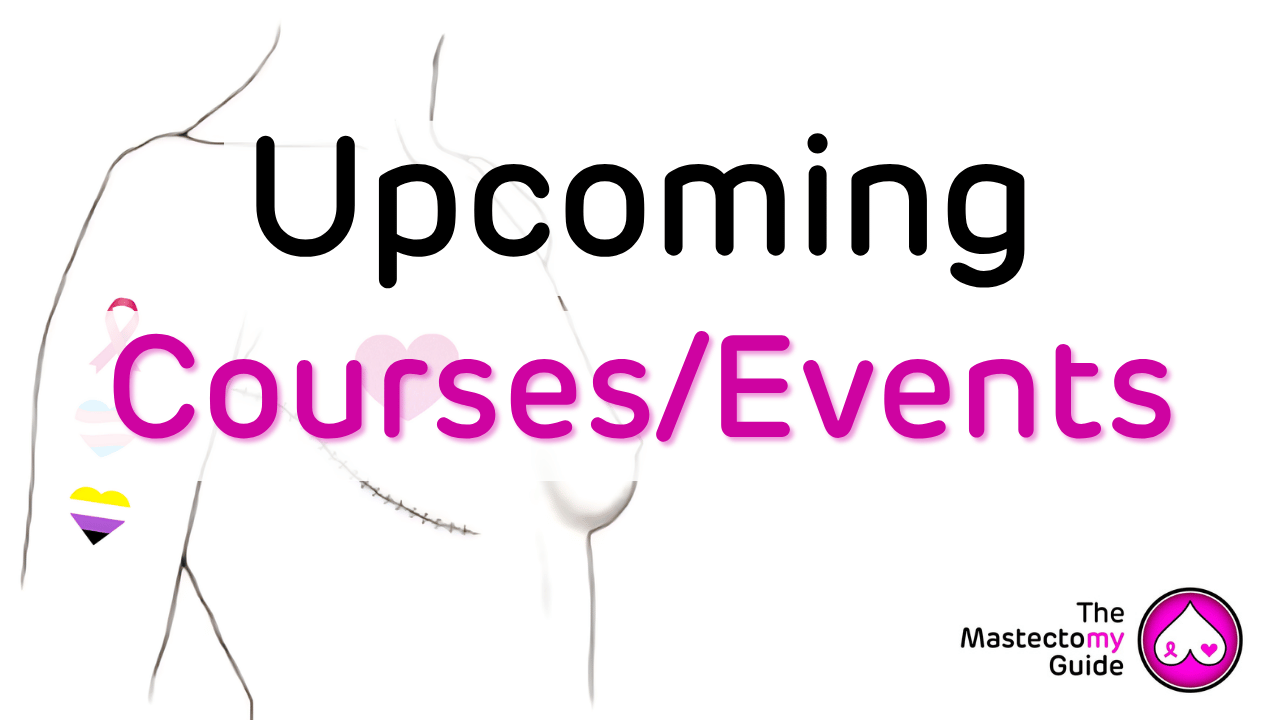
As a therapist, what if you're intimidated by your patient's issues? 3 methods for successfully working with breast surgery patients
Jan 31, 2022When we, as therapists, have patients who present with issues that intimidate us, how do we handle it?
It can be really hard and the immediate response may be to refer them on to someone who can help them better than we think we can ourselves. And often, this is a responsible move. Recognizing our shortcomings so we can get someone else to fill them in is smart practice.
However, what if it's not necessary to refer them on because we actually CAN help them? Perhaps all we need is proper training and confidence boosting that we are in fact the people our patients have been looking for.
Some issues therapists can be intimidated by:
1. Working with sensitive areas:
Working with breasts can be intimidating for therapists, especially when said breasts come with a serious illness like cancer, complications from surgery that we don't understand, or even just knowing what's happening under the skin during breast surgery, regardless of complications.
2. Working with traumatized people:
Also, what of the trauma our patients have been through? How do we handle people who've been through some seriously significant events? How do we handle our own triggers in response to this?
3 ways we can overcome the intimidation factor of working with breast surgery patients:
1. Training & Support:
We can take training that provides us valuable information on working with complex issues and parts of the body that are normally private. Our Mastectomy Guide courses are designed to set you up for confident clinical practice plus provide an ongoing network for answering questions, learning about new research and community support.
2. Clear Communication:
We can learn how to talk about sensitive subjects, using language that provides recognition of our patients issues, without skirting the professional boundary set in place that recognizes us as massage therapists and not counsellors. We can learn to be comfortable with talking about nipples, sensation, life adaptations and trauma responses.
3. Understanding the Anatomy:
We can learn about what is actually happening to the breasts during surgery. What is the anatomy that is affected? What foreign substance has been placed inside our patients body, how was it attached? What are the structures that have been moved in order for that foreign body to fit? We can answer what we are actually working with and why through evidence-informed courses.
Why should we even want to stretch ourselves as therapists?
It can be tempting to stick with what you already know, what you know you are good at. Why stretch yourself past your comfort zone?
There are several reasons to stretch ourselves:
1. Personal and professional growth:
Firstly, stretching yourself helps you grow as a therapist and as a person. Trying new things, expanding our boundaries to include new areas of interest, knowledge and skill can inject a new passion and purpose into your practice, providing inspiration and motivation to a practice that may be stale, or desiring to head in a new direction.
2. Genuine service:
Secondly, it positions you to be of genuine service to those that need it. Currently, breast surgery patients are severely underserved in terms of rehabilitation resources. Information out there is sparse and unconnected. It can be really hard for patients to know what to do and when to heal from breast surgery, which can be isolating and overwhelming.
3. True Satisfaction:
You have the opportunity to truly make a difference to a person's life. To their body, their psyche, their future. All by doing what you already know how to do, just applied in a new way to a new population. This can bring about true professional and personal satisfaction in the moment and at the end of the day.
Our invitation to join us in supporting breast surgery patients:
We offer courses that allow you to grow as a therapist and as a person, that deepens your knowledge of breast surgery anatomy and physiology, that position yourself to be the support person your patient is looking for.
Level 1: Introduction to Breast Surgery
Our Level 1 course provides a comprehensive deep dive into 18 types of breast surgery that you can have a direct, positive impact with. Plus we help you learn language, consents, draping and charting for breast massage patients, so you can build confidence and strength as a therapist.
Level 2: Post-op Complications and Integrative Cancer Care
Our Level 2 courses teach about 8+ complications that can happen after breast surgery, plus learning about lymphedema stages and interventions, as well as how massage therapy can support quality of life for patients undergoing chemotherapy and radiation.
Please check out our courses to learn more: https://www.mastectomyguide.com/store/
Join our private Facebook Group: Mastectomy Guide for Healthcare Professionals



